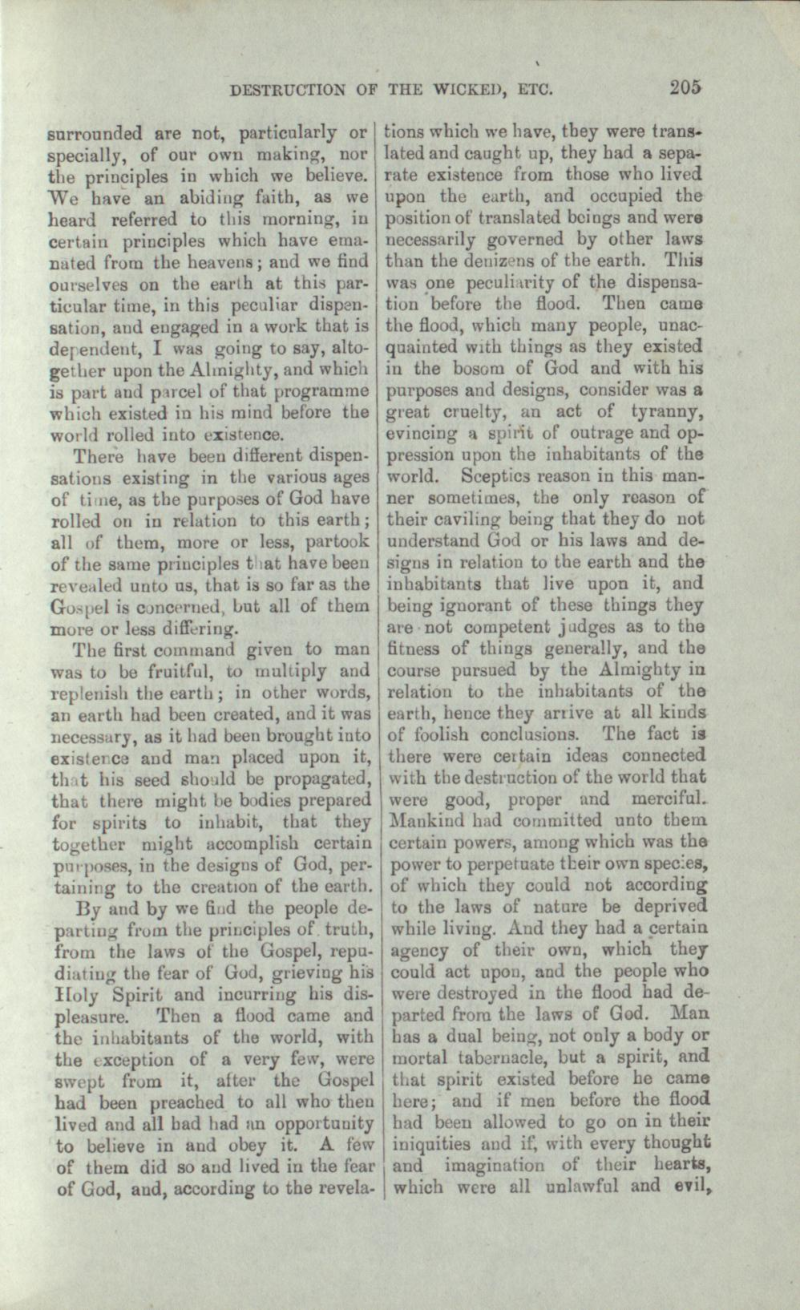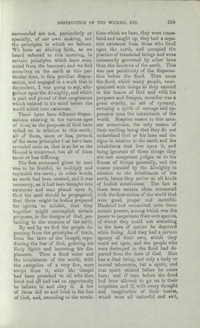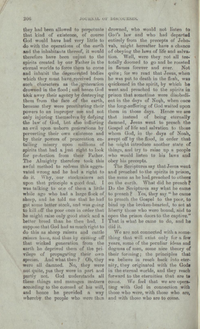John Taylor gives his views on the Flood, seems to imply it was worldwide.
- Type
- Speech / Court Transcript
- Hearsay
- Scribed VerbatimDirect
- Reference
John Taylor, "Destruction of the Wicked By the Flood, Wisdom in God," Journal of Discourses, 26 vols. (Liverpool: Albert Carrington, 1875), 17:205–206
- Scribe/Publisher
- Albert Carrington
- Audience
- Latter-day Saints
- Transcription
By and by we find the people departing from the principles of truth, from the laws of the Gospel, repudiating the fear of God, grieving his Holy Spirit and incurring his displeasure. Then a flood came and the inhabitants of the world, with the exception of a very few, were swept from it, after the Gospel had been preached to all who then lived and all had had an opportunity to believe in and obey it. A few of them did so and lived in the fear of God, and, according to the revelations which we have, they were translated and caught up, they had a separate existence from those who lived upon the earth, and occupied the position of translated beings and were necessarily governed by other laws than the denizens of the earth. This was one peculiarity of the dispensation before the flood. Then came the flood, which many people, unacquainted with things as they existed in the bosom of God and with his purposes and designs, consider was a great cruelty, an act of tyranny, evincing a spirit of outrage and oppression upon the inhabitants of the world. Skeptics reason in this manner sometimes, the only reason of their caviling being that they do not understand God or his laws and designs in relation to the earth and the inhabitants that live upon it, and being ignorant of these things they are not competent judges as to the fitness of things generally, and the course pursued by the Almighty in relation to the inhabitants of the earth, hence they arrive at all kinds of foolish conclusions. The fact is there were certain ideas connected with the destruction of the world that were good, proper and merciful. Mankind had committed unto them certain powers, among which was the power to perpetuate their own species, of which they could not according to the laws of nature be deprived while living. And they had a certain agency of their own, which they could act upon, and the people who were destroyed in the flood had departed from the laws of God. Man has a dual being, not only a body or mortal tabernacle, but a spirit, and that spirit existed before he came here; and if men before the flood had been allowed to go on in their iniquities, and if, with every thought and imagination of their hearts, which were all unlawful and evil, they had been allowed to perpetuate that kind of existence, of course God would have had very little to do with the operations of the earth and the inhabitants thereof, it would therefore have been unjust to the spirits created by our Father in the eternal worlds to force them to come and inhabit the degenerated bodies which they must have received from such characters as the generation drowned in the flood; and hence God took away their agency by destroying them from the face of the earth, because they were prostituting their powers to an improper use and not only injuring themselves by defying the law of God, but also inflicting an evil upon unborn generations by perverting their own existence and by their powers of procreation entailing misery upon millions of spirits that had a just right to look for protection from their Father. The Almighty therefore took this awful method to redress this aggravated wrong and he had a right to do it. Why, our stockraisers act upon that principle a good deal. I was talking to one of them a little while ago who had a large flock of sheep, and he told me that he had got some better stock, and was going to kill off the poor ones in order that he might raise only good stock and a better breed than he then had. I suppose that God had as much right to do this as sheep raisers and cattle raisers have, and thus by cutting off that wicked generation from the earth he deprived them of the privilege of propagating their own species. And what then? Oh, they were all damned. No, they were not quite, yes they were in part and partly not. God understands all these things and manages matters according to the counsel of his will, and hence he provided a way whereby the people who were then drowned, who would not listen to God's law and who had departed entirely from the precepts of Jehovah, might hereafter have a chance of obeying the laws of life and salvation. Well, were they not all tee-totally doomed to go and be roasted in flames forever and ever. Not quite; for we read that Jesus, when he was put to death in the flesh, was quickened in the spirit, by which he went and preached to the spirits in prison that sometime were disobedient in the days of Noah, when once the long-suffering of God waited upon them in those days. Hence we see that instead of being eternally damned, Jesus went to preach the Gospel of life and salvation to those whom God, in the days of Noah, swept off by the flood, in order that he might introduce another state of things, and try to raise up a people who would listen to his laws and obey his precepts.
- Citations in Mormonr Qnas
The B. H. Roberts Foundation is not owned by, operated by, or affiliated with the Church of Jesus Christ of Latter-day Saints.



